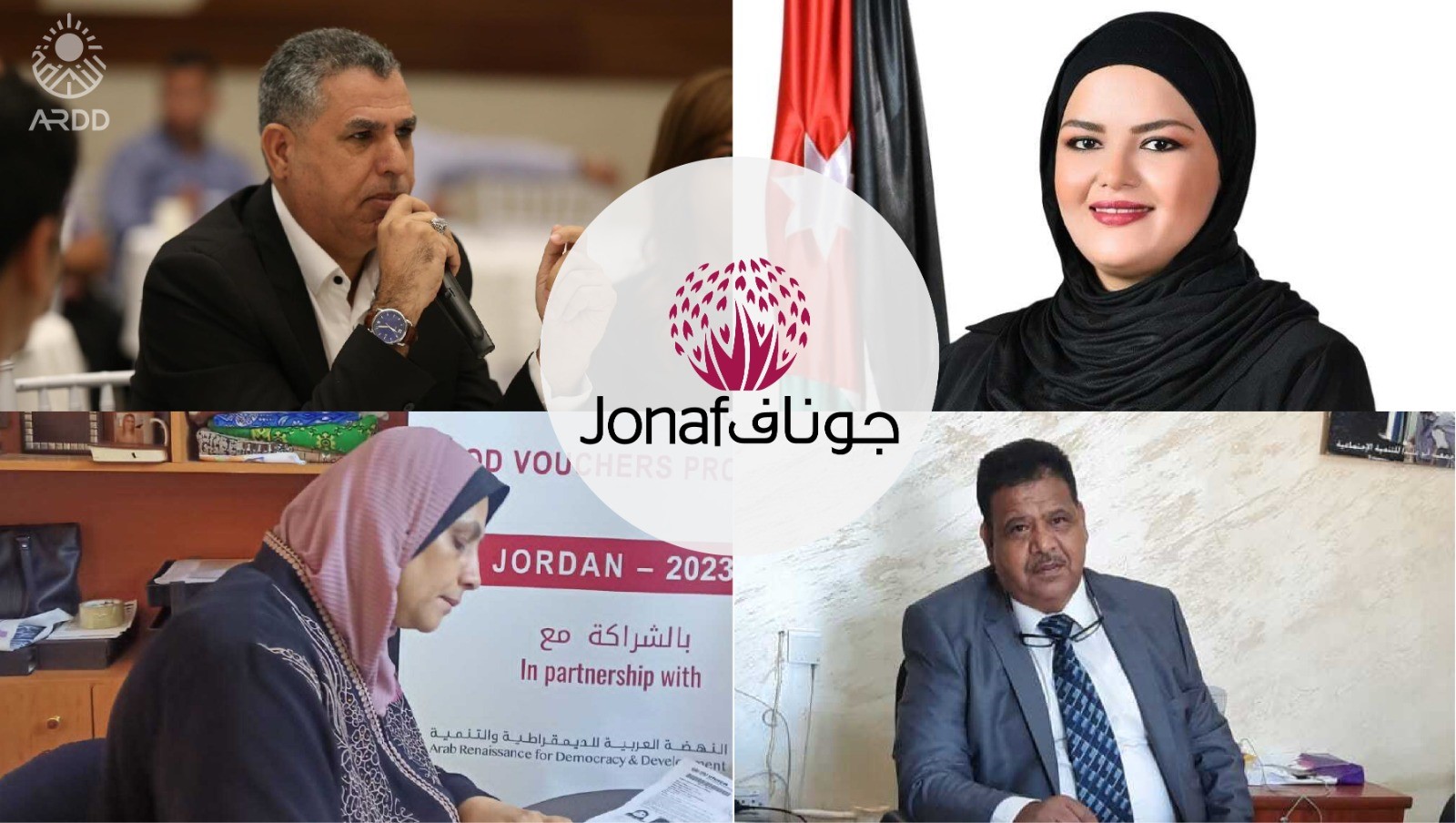For the fourth year, local NGOs have proven that they are best able to estimate the needs of their communities and work with them professionally, especially with regard to the distribution of aid, commitment to the application of humanitarian standards, in addition to reaching beneficiaries such as the elderly and people with disabilities, which had a positive impact on them.
The outstanding performance by these NGOs was evident during the preparation and response plans for seasonal or emergency assistance campaigns, such as those launched in winter, holidays, Ramadan, or in crises, in cooperation with the Arab Renaissance for Democracy and Development (ARDD), the general coordinator of the Jordanian National NGO Forum (JONAF), and with the support of the Islamic Relief Organization – France, and the cooperation of the Ministry of Social Development, and the Hashemite Charity Organization, in addition to partners from the private sector.
Established in 2016 as an initiative by a number of national and local non-governmental civil society organizations as well as local associations, namely: “Khawla Bint Al-Azwar” in Zarqa, “Step of Hope” in Irbid, “Abu Alanda for Social Development” in Amman, and “Child Care” in the Northern Badia of Mafraq, the JONAF Alliance participates in distributing relief assistance to the neediest groups of Jordanians and Syrian refugees. Over four years, this assistance covered nearly 1,700 families, all in the context of ensuring the realization of the principle of inclusive social justice and promoting the spirit of solidarity among the different groups of society.
Here, ARDD would like to acknowledge the role of local associations that are best able to estimate the needs of their communities. It also stresses the need to provide support to national actors and enable them to prepare to deal with any emergency or seasonal repercussions and reach all governorates of the Kingdom, while also emphasizing the role of the government and the international donor community in creating an enabling environment that supports and promotes local civil society.
From the heart of these communities and their surroundings, these associations narrate the great impact this assistance had on individuals, especially as it restores hope that there are others who empathize with their circumstances and their suffering, regardless of their location.
Dr. Abdul Ilah Al-Hunaiti, Head of Abu Alanda Association, and member of the administrative board of the Union of Charitable Societies in Amman, said that NGOs are an important arm for all institutions and donors to serve and assist the needy, due to their ability to estimate the needs of their communities, pointing out that his association, which was established in 1988, receives hundreds of people every day asking for a helping hand, which means that the burden is heavy and there is a constant need for more human, moral, and religious support and solidarity.
The director of the Khawla Bint Al-Azwar Association, Kifah Ghannam, did not hesitate to remind all the stakeholders of the need to “open hearts and doors to these needy groups, as we are required to extend a helping hand and assistance to everyone in need. Hence, it is important to keep offering this assistance, even though it is insufficient with the size of the needs required by individuals in Zarqa Governorate, specifically with the deterioration of living conditions and the expansion of poverty and unemployment,” stressing that her association, which was established in 2004, seeks to improve and develop the economic, professional and educational capabilities of Individuals, according to its ability and capabilities.
Based on many firsthand observations and the suffering of many groups who have been going through dire straits, specifically in the poorest areas in Mafraq Governorate, came the idea of establishing a child welfare charity that was established in 2000, according to its president, Fare’ Al-Masaeed, who saw that there is a positive impact of the aid we distribute during the various seasons, but we need to keep doing that and expand it, especially as we are approaching the winter season.
The President of the Step of Hope Association, Eng. Mai Abu Addad, called for paying attention to local needs and responding more to the needs of individuals. “Since the establishment of the association in 2014, it has been proven to us when we approached the local community that the number of the neediest groups is constantly increasing, and they are in great need of support and assistance,” she said, stressing the need to sustain support for relief institutions and charities, because of their significant impact on the local community.
In conclusion, the efforts of local NGOs and the cooperation shown by government institutions, including ministries and cadres, to ensure that aid reaches those who deserve it, require more cooperation as well as activation of localization of humanitarian work and complementarity between the role of civil society, the government and donors, in addition to building the capacities of workers in these associations, developing their skills, and enhancing their capabilities to reach the most underprivileged and neediest groups in our societies.


